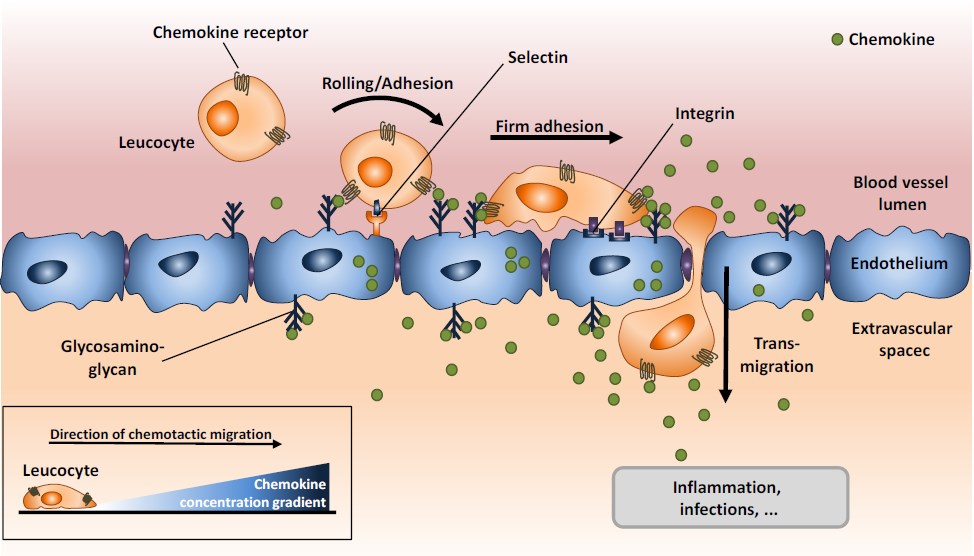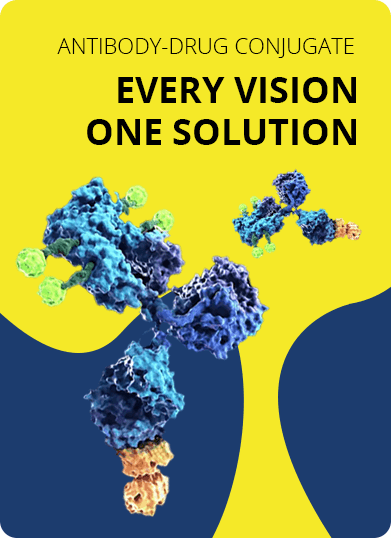- Home
- UTC Development
- Antibody-Immunostimulant Conjugate Development
- Antibody-Chemokine Conjugate Development
Antibody-Chemokine Conjugate Development Service
Antibody-chemokine conjugates represent a novel class of biopharmaceuticals, with the potential to increase the therapeutic index of chemokine payloads and to promote leukocyte infiltration at the site of disease. As a well-recognized expert in antibody-drug conjugate (ADC), Creative Biolabs provides antibody-chemokine conjugate development services for your cancer therapy research via conjugating antibodies with various chemokines.
The Overview of Chemokines
Chemokines are a family of 8-14 kDa proteins that chemoattracts specific types of leukocytes. The superfamily of over 50 identified chemokines are classified on the basis of the number and location of N-terminal cysteine residues, as denominated C, CC, CXC, and CX3C members, in which C indicates the number of N‑terminal cysteine residues in the region and X shows the number of intervening amino acids between the first two cysteines.
Chemokines act by interaction with seven-transmembrane G-protein-coupled receptors. When a chemokine binds to the extracellular N-terminus of its receptor, serine/threonine residues on the cytoplasmic C-terminus get phosphorylated. Binding of a chemokine to its receptor stimulates transcription of genes involved in invasion, motility, extracellular matrix interaction, and cell survival. Chemokines play many roles such as organ development, angiogenesis/angiostasis, leukocyte trafficking, homing, tumorigenesis, and metastasis as well as induction of immune responses against microbial infection.
 Fig.1 Chemokines act in gradients to promote the directional migration of chemotactic cells. (Jin, 2018)
Fig.1 Chemokines act in gradients to promote the directional migration of chemotactic cells. (Jin, 2018)
Antibody-Chemokine Fusion Proteins
There have been only a few reports related to the implementation of tumor-targeting strategies with chemokines. Human CCL5 (RANTES) was fused to the N-terminus of the heavy chain of an IgG3 antibody specific to the tumor-associated antigen HER2/neu. Specific binding of IgG3-CCL5 fusion protein to HER2/neu Ag expressed on EL4 cells and SKBR3 breast cancer cells could be shown. Scientists described the production of a recombinant chemokine, consisting of murine liver-expression chemokine (LEC)/CCL16 fused to the murine antibody chTNT-3 in IgG format, which targets DNA in necrotic regions of tumors. The IgG-CCL16 fusion protein-mediated a 37-55% reduction in tumor growth rate in immunocompetent mice bearing tumors. In a third report, featuring the use of a recombinant murine antibody fragment specific to human acidic isoferritin in scFv format, the fusion protein mCXCL10-scFv could be expressed and the chemokine retained its antibody binding specificity and chemokine function.
Features of Our Services
- High affinity and specificity antibody production.
- Extensive experience in antibody-chemokine fusion proteins design and production.
- Fast turnaround time and quality controls at each phase.
- Competitive pricing and timely progress reports.
Creative Biolabs is equipped with state-of-the-art research facilities and dedicated to helping our clients design and prepare highly customized antibody-chemokine conjugates. With advanced technology platforms and professional experiment services, we get ready to provide you with top-quality antibody-chemokine conjugate services. Please feel free to contact us for more details.
Reference
- Jin, T.; et al. Chemotaxis, chemokine receptors and human disease. Cytokine. 2018, 44(1), 1-8.
For Research Use Only. NOT FOR CLINICAL USE.

Online Inquiry
Welcome! For price inquiries, please feel free to contact us through the form on the left side. We will get back to you as soon as possible.
